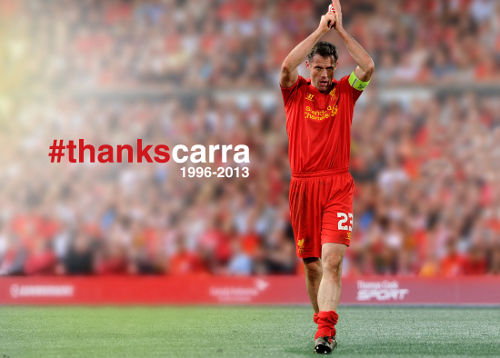Tony Barrett: It's end of an era for us
We all know Carra will be missed on the pitch and in the dressing room – but in an article for Liverpoolfc.com, Times reporter Tony Barrett explains what he was like to deal with as a journalist and how much his retirement will be felt in the press box.
It is July 2005 and I'm on a train travelling from Switzerland to the Liechtenstein capital, Vaduz. The Liverpool Echo's multi-award winning Liverpool correspondent, Chris Bascombe, has been unable to make the trip for a pre-season friendly against Olympiakos and I've been asked to stand in. It is my first ever game and Liverpool are the reigning European champions. No pressure there then...
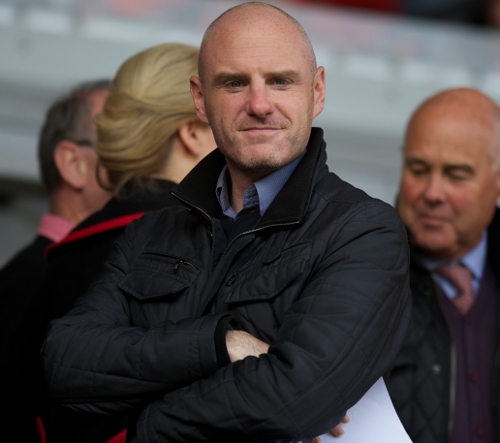
My task is to write a match report and come up with a back page story which seems straightforward enough but when you've never done either before it's a daunting task. You know none of the players and, more importantly, they don't know you. The big worry is that none of them will stop afterwards for an interview that will make the back page and you will be left with nothing.
Once the game has finished I head to a dirt track close to the Liverpool team bus and wait in hope that someone will talk to me. Jamie Carragher is among the first to appear. I tell him who I am, what I'm doing there and ask if he'd do a brief interview about the game. He tells me to wait where I am before disappearing onto the coach. Five minutes pass and I start to wonder if he's dodged me. The next thing he's heading back towards me with Peter Crouch, Liverpool's new signing from Southampton.
"Go ed Crouchy," he says. "This lad's from the local paper. Just do a couple of minutes with him." Not only is my job done, it couldn't be done any better. If I'd had a player interview at the top of my list when I headed out to Vaduz it would have been with Crouch. There is nothing better than a new signing talking about his hopes and aspirations and this is a genuine exclusive - thanks to Jamie Carragher.
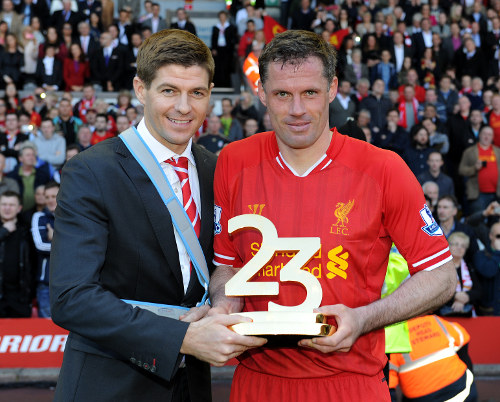
Four days later and I'm on European duty again, this time in Lithuania, for Liverpool's Champions League qualifier against FC Kaunas. If anything, this time the pressure is even greater. Unlike the friendly against Olympiakos, this game actually matters so the stories I do or don't come up with are even more significant. The match goes well for Liverpool who win 3-1 with Carragher scoring his second goal since his full debut in January 1997 so, along with several other journalists I head down to the side of the pitch to try and grab an interview.
Carragher spots Paul Rogers, from Liverpool's official website, and myself and stops. This time he's got something to say but first he cracks a joke. "I'm joint second top scorer at the club in this season's Champions League so now I'm looking at challenging all Europe's top strikers," he laughs. That's the back page sorted and a "Golden Boot Is Carra's Target" headline duly follows. But he isn't finished there. There is an issue much more important than his own goalscoring prowess that the defender wants to discuss.
"I want to dedicate that goal to Michael Shields and all his family who are suffering so badly right now," he says. "If I'd have known I was going to score against Kaunas I would have worn a t-shirt under my Liverpool shirt with Michael's name on it." The day before, Michael had been sentenced to fifteen years in jail by a Bulgarian court after being found guilty of the attempted murder of Martin Georgiev, a waiter, in the aftermath of Liverpool's Champions League win in Istanbul two months earlier.
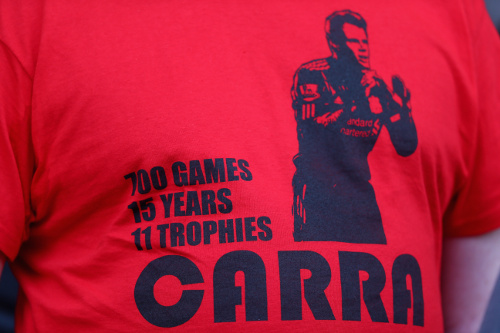
A campaign to clear Michael's name was already underway but Carragher's intervention was the most significant yet. Players at all clubs are warned to avoid speaking out about sensitive issues that are not football related so when one does it is massive news. Carragher knows this but still weighs in on Michael's behalf. "When we got the news that he'd not only be found guilty for a crime he didn't commit but actually been sentenced to 15 years, our hearts sank," he adds.
"For myself, Steven [Gerrard] and the other local lads in the team, it really hit us. He's one of us; a young lad who went to a game to watch Liverpool and ended up being thrown in prison in a foreign country. He must be absolutely distraught at what's happened just as everyone in Liverpool is. He should have been here in Lithuania cheering us on but instead he's locked up. Me and Stevie are heartbroken for the lad because it's obviously an injustice.
"I'm not sure how the justice system works in Bulgaria but hopefully something can be done about this case. I think somebody very high up in the government - possibly even Tony Blair himself - should step in and fight Michael's corner because what has happened is wrong. There is a lad in Liverpool who has owned up to the crime and admitted it was him and not Michael Shields who is the guilty one.
"I know there is a lot going on around the country right now with everyone working overtime to prevent any more terrorist activity but I really do think someone from very high up in the government needs to get involved in this case.
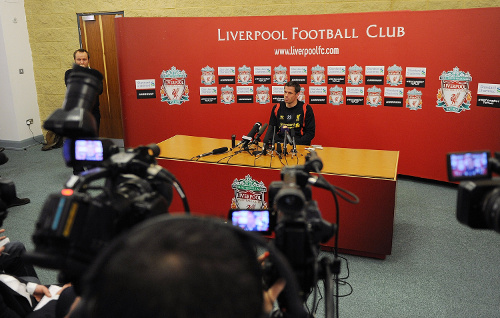
"I won't pretend to know how Michael must feel right now but I've got kids of my own and I can imagine how his parents must feel seeing their son locked up for a crime they know he didn't commit. If it was my kid, I'd be in pieces. We're not giving up hope though. We know he's innocent and we're sure that someone from the government will step in to make sure justice gets done."
The enormity of these words, uttered moments after a big game has finished, has not diminished with time. Showing solidarity with a Liverpool fan and empathy with his family is one thing, but calling for a British Prime Minister and his family to intervene on their behalf is quite another. For me, it is a front page story but for those involved in the campaign to free Michael Shields it is a public endorsement and a challenge to the authorities that takes their struggle to a whole new level.
In two brief encounters with Carragher, I'd seen some of the qualities that helped make him one of the most respected figures in football, particularly for journalists. Helpful, willing to speak his mind and always aware of the sacrifices that supporters make when following their team, there has been no better interviewee in recent times. But it is only when you experience it for yourself, as I did in Vaduz and Kaunas, that you fully appreciate his value as a human being as well as his obvious talent as a footballer.
In the years before and since, Carragher has given countless interviews to journalists like myself and they have all been compulsive reading for supporters of Liverpool and of other clubs. Last week he gave his final one as a player and while we were quizzing him about his playing days coming to an end, there was also an inescapable feeling amongst the media present that it was the end of an era for us as well. Post match mixed zones will be a quieter place after Jamie Carragher's retirement and it will certainly be harder to produce the kind of stories that I was handed on a plate in Liechtenstein and Lithuania.
A new documentary featuring Jamie Carragher's managers, teammates and some high-profile opponents airs for the first time at 7pm BST on Friday, May 24 on LFC TV. 'Carragher' will also be available on LFC TV Online and will conclude a fortnight of tributes across club media.




